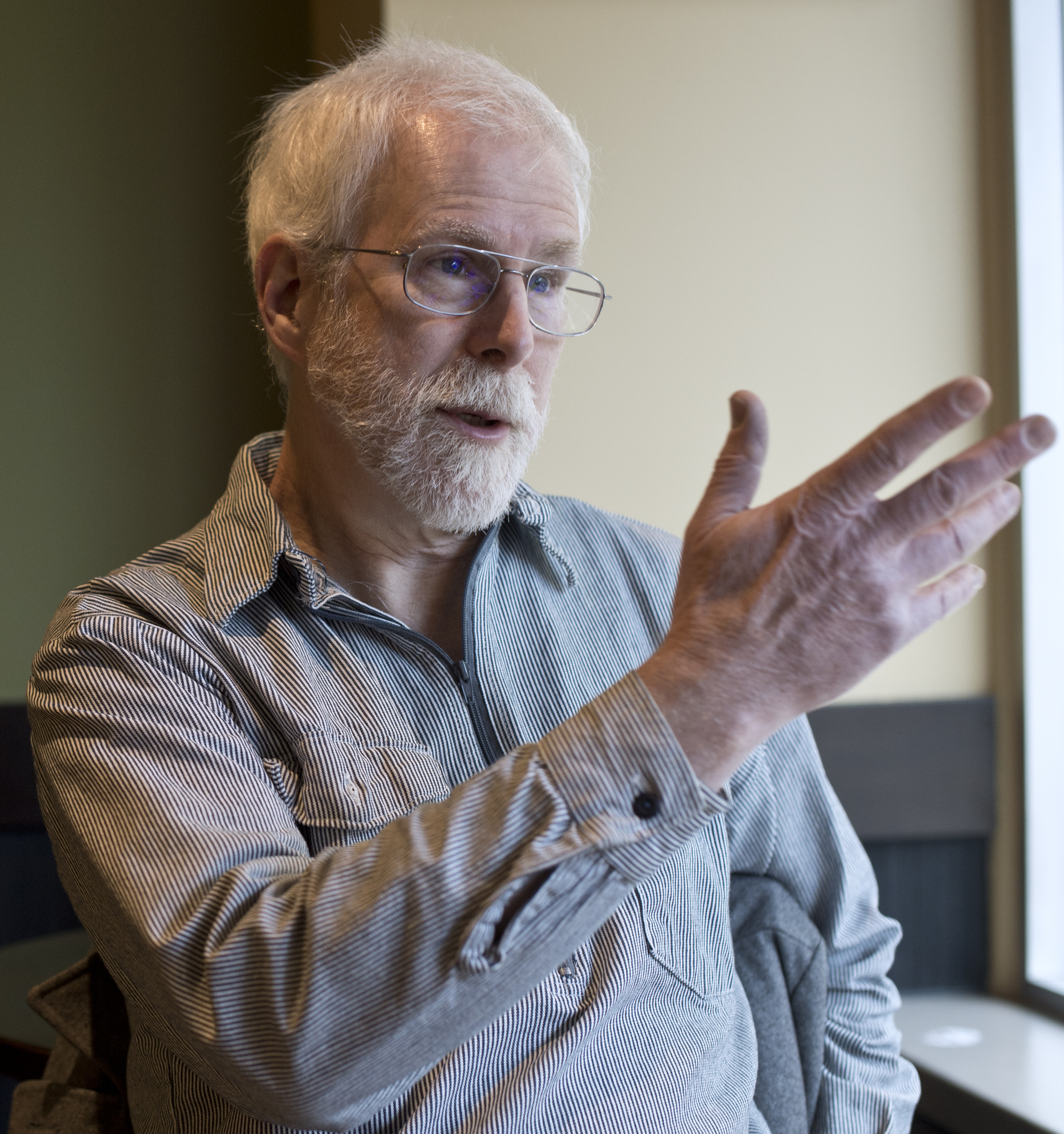In walking through Juneau, there isn’t anything overtly dedicated to Mortimer “Mike” Miller, the former state representative who died Feb. 11.
Not even his son Kevin thinks about it much as he looks around town, but Miller’s impact on the community includes everything from preserving the Mendenhall Wetlands State Game Refuge to fighting for public employees’ rights to keeping the capital in Juneau.
“A lot of the stuff that he did was kind of less obvious,” Kevin said. “Like the wetlands, if I think about it, ‘OK, it’s here and it’s protected. People can enjoy this because of his efforts.’ But there’s nothing that really says Mike Miller on it, so you don’t necessarily get reminded of it all the time.”
Miller and his wife Marilyn — who survives him — moved away from Wichita, Kansas, in 1954, looking to travel the world. As Miller often joked, they made it as far as Ketchikan before their money ran out. The Millers ended up staying, and Miller ended up being an important figure in the politics and culture of Southeast Alaska for decades to come.
A travel writer by trade, Miller began his time in Alaska writing books and articles about traveling in the region before eventually becoming the publicity director at the Alaska Travel Division.
In 1971, he was elected as a representative and continued his legislative career until he retired in 1986. During that time, Miller showed a valuable ability to unite others in the Legislature and elsewhere to make a difference in the Southeast Alaska community. Former Alaska attorney general and Juneau mayor Bruce Botelho remembers Miller prioritizing environmental causes and promoting a transparent government.
Among Miller’s largest triumphs included aiding with preserving the Mendenhall wetlands and helping keep the capital in Juneau in the mid-1970s when one of the most serious pushes to move the capital occurred. He also commonly hosted young Democratic legislators at his home during sessions, hosting them in good times and bad, Botelho recalled.
John Pugh, the former chancellor at University of Alaska Southeast, met Miller in the late 1970s and was immediately struck by how well Miller understood how to create political change. Miller found common ground everywhere, from getting a drink with fellow legislators at the Baranof Hotel to even organizing a bible study for legislators. The mix of personalities in that bible study class stood out to Pugh.
“There was the governor there, there were Republicans, there were Democrats like myself and Mike,” Pugh remembered. “He always had that ability to work with all people, with all stripes. He really worked hard at that, and he lived his life that way. I don’t think he ever said a bad word about anybody. He was really the kind of guy that liked people and saw the good in everybody.”
Kevin saw that attitude firsthand as he grew up. He remembers one instance in particular in the mid-1960s, when an African-American family moved in nearby the Millers in their Tongass Park neighborhood. A next-door neighbor drafted a petition in an attempt to get the African-American family to move out of the neighborhood, and Miller was “appalled,” as Kevin remembers, and ensured that the family was able to stay.
Instances like that have left impressions on numerous people around the city and the region, and word has spread of Miller’s death. Kevin and his family have begun to get phone calls and Facebook comments from old friends, many of whom remember Miller for his integrity and honesty. The legislation has made a difference, and Miller’s example of treating people well and getting along with everybody affected people all over the state and beyond.
“That was something he always strove for,” Kevin said. “He was a public servant, with the emphasis on ‘servant.’ He wanted to actually get in there and try to do what he did for the good of the community.”
Pugh also saw numerous examples of Miller’s love for the community and the region. Both he and Kevin pointed out that Miller traveled all over the world, but never found a place he liked more than Alaska.
With his travel writing background, Miller continued to be an influential advocate for the region even after retiring from politics in his mid-fifties. He continued to write articles, and with Pugh’s help organized a convention of travel writers from around the state and country to meet in Juneau and learn more about the trade, which in turn exposed Alaska to a wider range of travel writers and readers.
A memorial service for Miller will take place at 1 p.m. Saturday at Northern Light United Church, and all are welcome to attend. Pugh is giving a eulogy, one that refers to Miller as “one of Alaska’s giants.” Though his name might not be as recognizable as other politicians over the years, those who knew Miller agree that the impression he left on Juneau is indeed that of a giant.
“He was a very good advocate, but he was a gentleman in all his dealings with people, regardless of their viewpoint,” Botelho said. “That ability, I think is one thing people remember. He was a model for that.”

